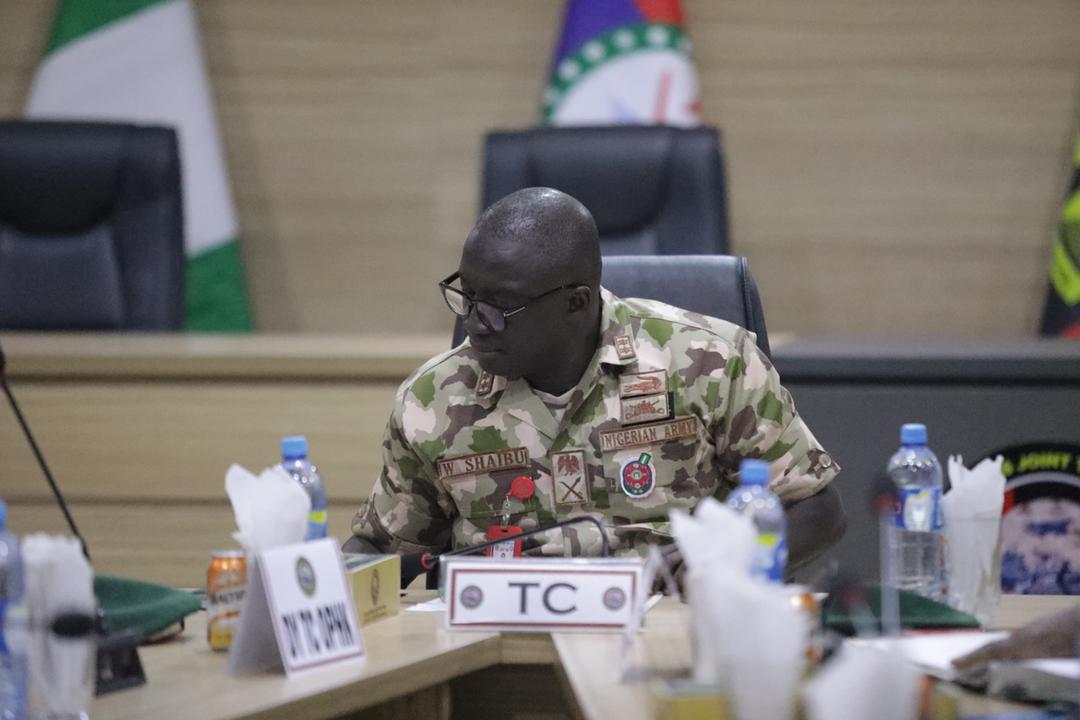Gift Wada
In the battle against the Boko Haram insurgency, the Nigerian Military has faced intense scrutiny over its counter-terrorism methods and human rights practices. However, the Joint Investigation Centre (JIC) in Maiduguri is emerging as a beacon of reform, redefining the standards for handling suspected insurgents while prioritizing humanitarian care and adherence to human rights.
The Boko Haram insurgency has posed dual challenges for the Nigerian military: combating a relentless insurgency while managing public and international perceptions. Criticism has centered on the military’s tactics, particularly their impact on innocent civilians.
To address these concerns, the military has adopted a more people-centric “kinetic approach,” prioritizing the welfare of detainees and adherence to international human rights standards.
In an interview with Global Sentinel, Major General Waidi Shaibu ,Theatre Commander Joint Task Force North East Operation HADIN KAI stressed that the conflict is as much a battle of ideology as it is a physical one.
He said, “Many insurgents have been indoctrinated to the point where their actions defy reason. To counter this, we have implemented a range of strategic kinetic and non-kinetic approaches to de-radicalize them. Often, when they regain clarity and reflect on their past actions, they express profound regret. Many even take up the role of peace ambassadors, advocating for reconciliation and inspiring others to abandon the path of violence.”
“We actively promote education at all levels as a critical tool for combating ignorance and fostering enlightenment. Our efforts include organizing trips beyond their immediate environment—sometimes even beyond the country’s borders—to broaden their worldview. Many of these individuals are deeply naive and unexposed, having never experienced life outside Borno State. By exposing them to diverse perspectives and opportunities, we aim to dismantle the narrow mindset that fuels extremism.” He explained.
The Joint Investigation Centre (JIC) reflects a paradigm shift through its structured processes and humane management of individuals detained during counter-terrorism operations. During a recent visit, Global Sentinel witnessed the military’s dedication to upholding a dignified and rights-compliant environment that prioritizes the well-being of detainees.
The JIC: A Multi-Agency Model for Counter-Terrorism
The JIC, located in Maiduguri, is a centralized detention facility designed for the temporary holding and investigation of suspected Boko Haram and ISWAP terrorists. It embodies a collaborative framework, integrating personnel from the Nigerian Army, Defense Intelligence Agency, Police, Department of State Services, and other agencies. Legal oversight is provided by the Office of the Attorney General of the Federation, ensuring that investigations align with Nigeria’s counter-terrorism laws.
LT. Col. Aliyu Ahmed, Ag Commander JIC North East Operation HADIN KAI, explained that the Nigeria Army does not conduct investigation but the center serve as a custody for suspects to be investigated.
“Due to the constant issue of jail break in the conventional prison facilities, we thought it more better to have a well secured detained center for suspects who are under investigation.
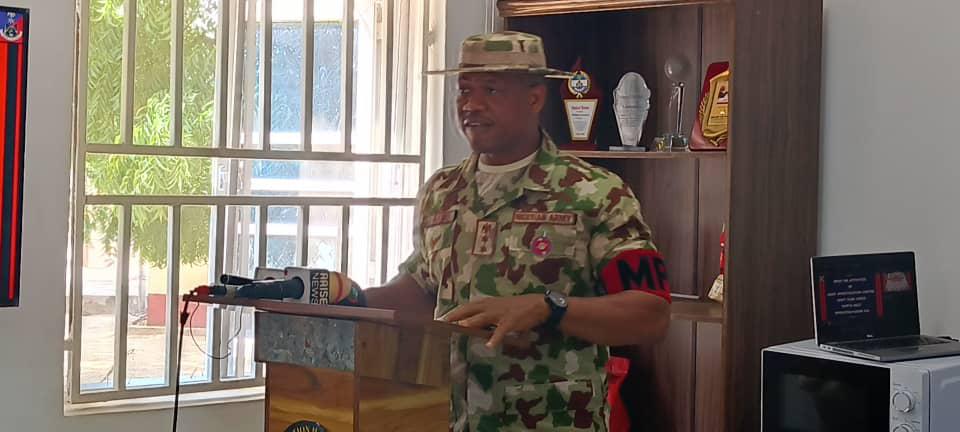
Col. Aliyu Ahmed, Ag Commander JIC North East Operation HADIN KAI,
Key features of the JIC
Humane Detention Conditions: Separate cells for male and female detainees, with children housed alongside their mothers and provided with basic education. Facilities include televisions for psychological well-being, routine fumigation, and consistent medical care supported by partnerships with organizations like the ICRC, IOM, UNICEF, and Alamin.
Skills Acquisition Programs
Lt. Col Ahmed said due to the long detention periods for some suspects, the JIC offers programs in tailoring, farming, and other trades, fostering productivity and rehabilitation.
“We try to engage their minds hence the need for skill acquisition initiatives and other trades which fetch them money. Some of our detainees through tailoring, fish farming or crop production have been able to save up-to one million Naira, we have another detainee who currently has N600,000 saved for himself from these trade they are engaged in,” he explained
He also affirmed that with support from the ICRC, the JIC facilitates communication between detainees and their families, alleviating emotional stress and fostering hope.
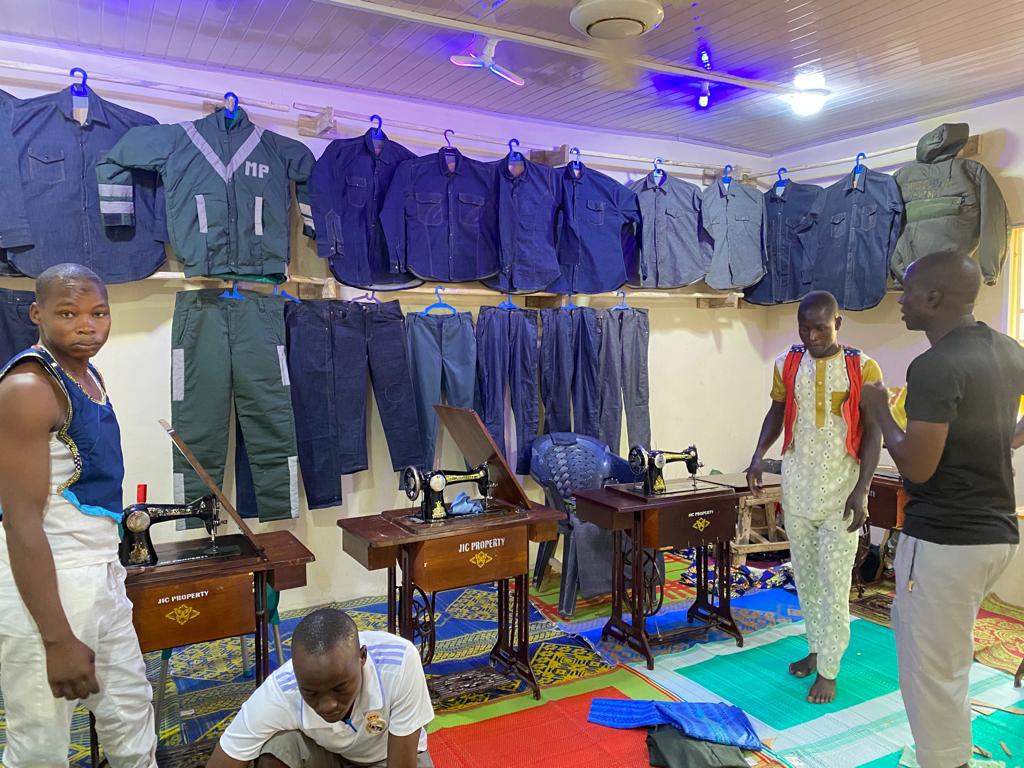
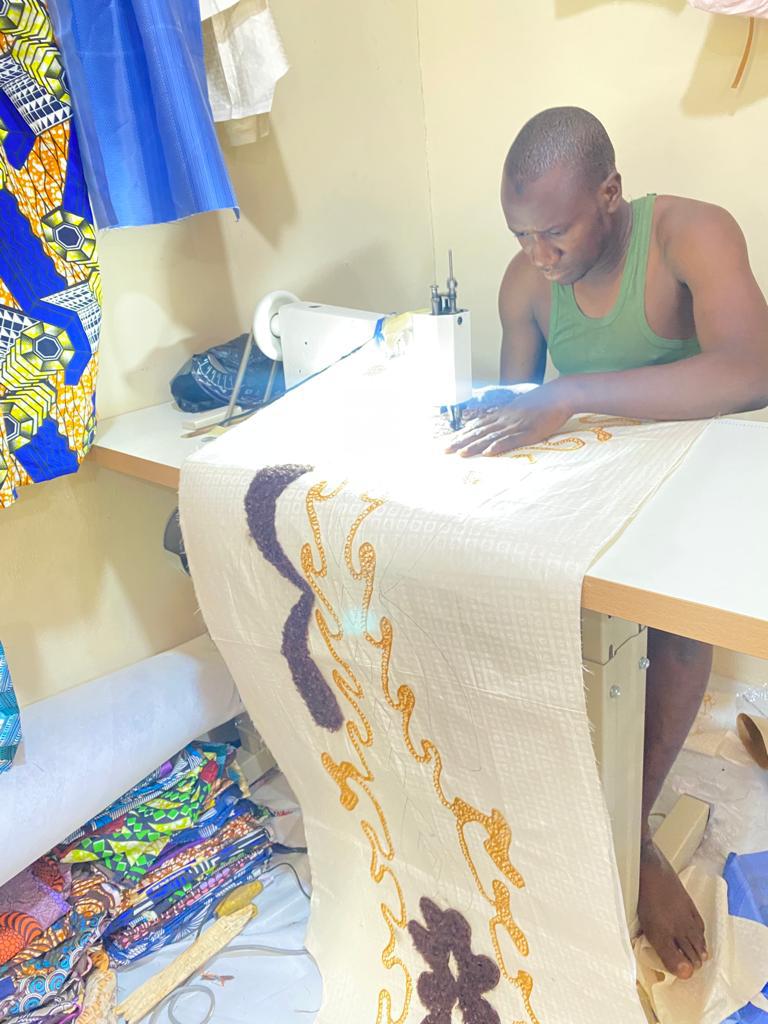

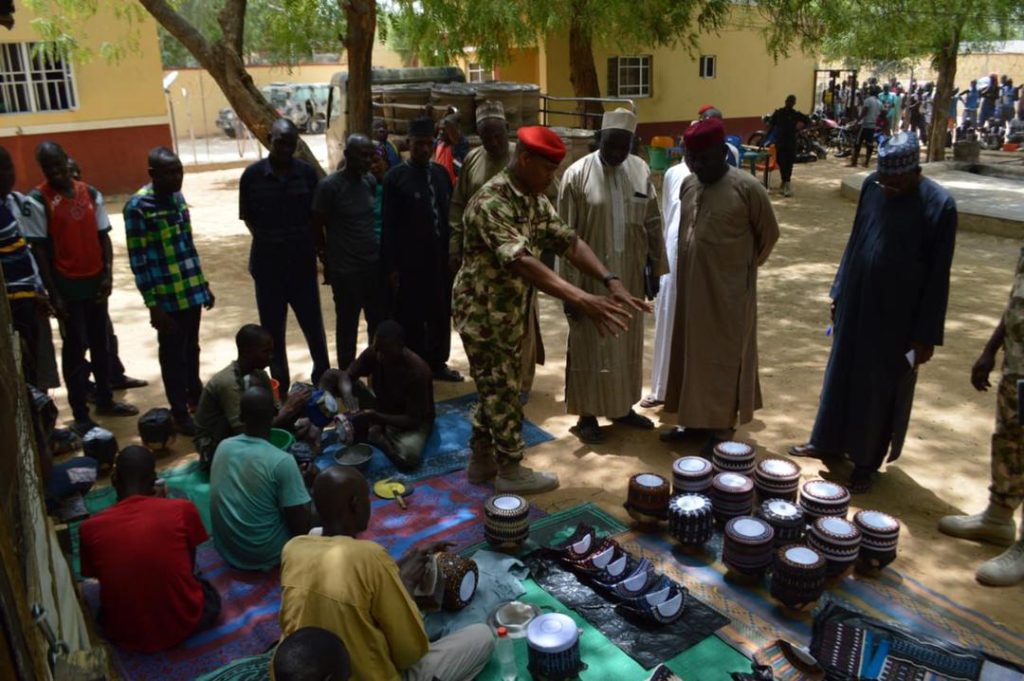
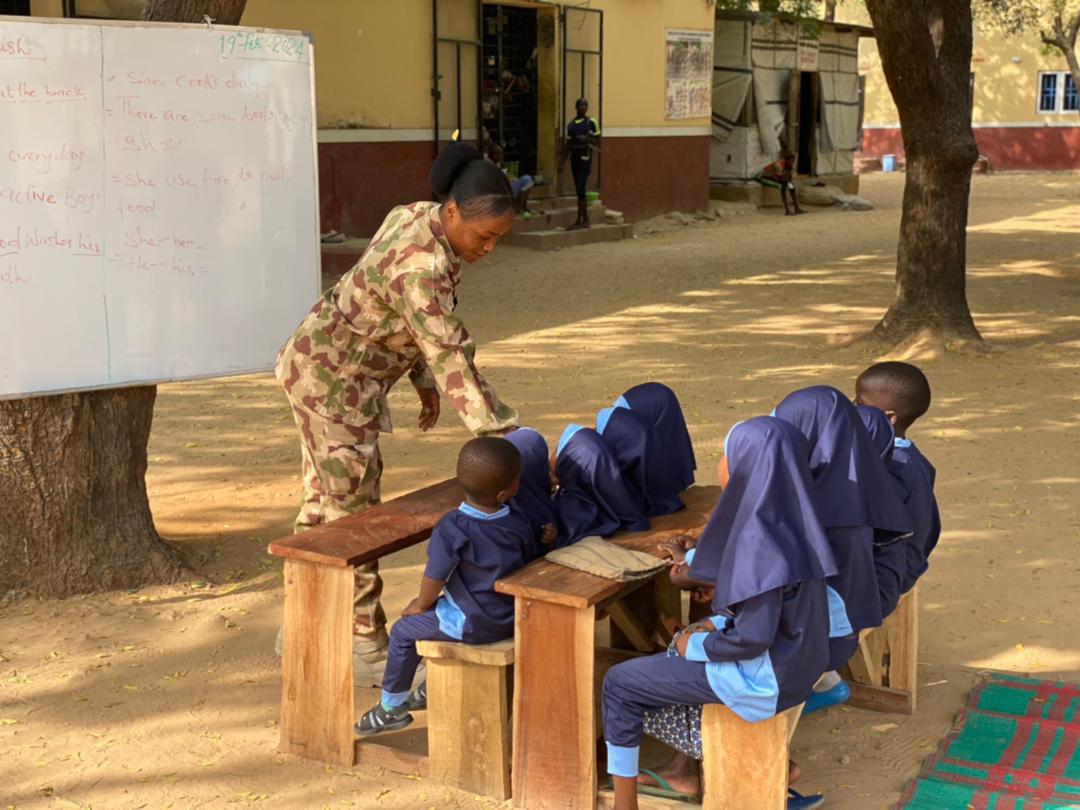
Legal and Investigative Rigor
Investigations are conducted within the legal frameworks of Nigeria’s counter-terrorism laws, with the aid of advanced techniques and equipment provided by international partners like the UNODC.
Addressing Challenges and Charting a Path Forward
“Despite these successes, the JIC faces significant challenges. Delays in prosecution prolong detainees’ stays, and difficulty accessing witnesses often hampers investigations,” Ahmed lamented
Redefining Counter-Terrorism
The JIC stands as a testament to the Nigerian Army’s commitment to upholding human rights while combating insurgency. Its efforts have not gone unnoticed, earning commendations as a model facility for detention and investigation. By integrating humanitarian care into its operations, the JIC demonstrates that effective counter-terrorism measures and human rights protections are not mutually exclusive but mutually reinforcing. The JIC serves as a symbol of what is possible when innovation, collaboration, and respect for human dignity converge.

